Filter by
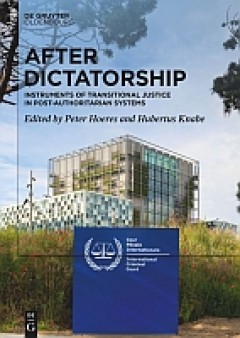
After Dictatorship : Instruments of Transitional Justice in Post-Authoritaria…
What must be done after the end of a dictatorship so that the suffering of those persecuted comes to an end and history does not repeat itself? Only rarely have long-term studies academically investigated the effects that measures implemented within the context of transitional justice have actually achieved. Taking seven countries as examples, this volume analyses what coming to terms with dict…
- Edition
- -
- ISBN/ISSN
- 9783110796704
- Collation
- 560
- Series Title
- Instruments of Transitional Justice in Post-Authoritarian Systems
- Call Number
- -
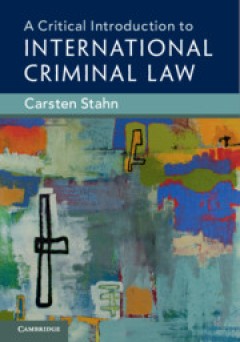
A Critical Introduction to International Criminal Law
Suitable for students, academics and professionals from multiple fields wishing to understand contemporary theories, practices and critiques of international criminal law, this book presents the field in an accessible way via five core themes: crimes, theories of responsibility, global justice institutions, procedures and punishment and reparation. This title is also available as Open Access on…
- Edition
- -
- ISBN/ISSN
- 9781108399906
- Collation
- 464 hlm
- Series Title
- -
- Call Number
- -

A Comparative Analysis of Pre-Trial Procedure in Europe: The Search for an Id…
The hearing of a case in a court room by a tribunal, today classified as the trial phase, has long stood inherently in the nature of the judicial competence of a State. By contrast, the pretrial phase and the introduction of the public prosecutor into the criminal procedural system as a subject of the judicial process has a much shorter history than the trial. However, in recent times, the pre-…
- Edition
- -
- ISBN/ISSN
- 978-605-07-0747-2
- Collation
- 233 hlm
- Series Title
- -
- Call Number
- -

UN Security Council Referrals to the International Criminal Court : Legal Nat…
This book offers a unique critical analysis of the legal nature, effects and limits of UN Security Council referrals to the International Criminal Court (ICC). Alexandre Skander Galand provides, for the first time, a full picture of two competing understandings of the nature of the Security Council referrals to the ICC, and their respective normative interplay with legal barriers to the exercis…
- Edition
- -
- ISBN/ISSN
- 9789004342217
- Collation
- 280 hlm; ill., lamp.,
- Series Title
- -
- Call Number
- -

National Constitutions in European and Global Governance: Democracy, Rights, …
This two-volume book, published open access, brings together leading scholars of constitutional law from twenty-nine European countries to revisit the role of national constitutions at a time when decision-making has increasingly shifted to the European and transnational level. It offers important insights into three areas. First, it explores how constitutions reflect the transfer of powers fro…
- Edition
- 1
- ISBN/ISSN
- 9789462652736
- Collation
- XXIV, 1522 hlm,: ill, lamp;
- Series Title
- -
- Call Number
- -

Do Exclusionary Rules Ensure a Fair Trial? : A Comparative Perspective on Ev…
This open access publication discusses exclusionary rules in different criminal justice systems. It is based on the findings of a research project in comparative law with a focus on the question of whether or not a fair trial can be secured through evidence exclusion. Part I explains the legal framework in which exclusionary rules function in six legal systems: Germany, Switzerland, People’s …
- Edition
- -
- ISBN/ISSN
- 978-3-030-12520-2
- Collation
- XV, 380
- Series Title
- Ius Gentium: Comparative Perspectives on Law and Justice (IUSGENT, volume 74)
- Call Number
- 320 DOE
Combatting Illicit Trade on the EU Border
This open access book provides the first-ever comparative study on criminal policy concerning the illicit trade of tobacco, conducted among four comparatively new EU Member States (Lithuania, Poland, Slovakia and Romania) and two “old” EU countries (Germany and Italy). The book addresses the national legal frameworks, current criminological situation regarding illicit trade of tobacco, and …
- Edition
- -
- ISBN/ISSN
- -
- Collation
- -
- Series Title
- -
- Call Number
- -
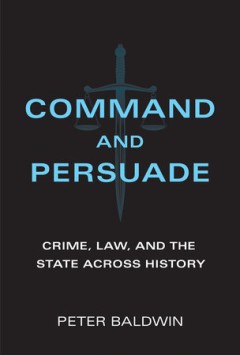
Command and persuade :crime, law, and the state across history
"This history of crime and punishment spans 3000 years and multiple continents to reveal the larger patterns in how the state has maintained order and enforced law over the centuries"--OCLC-licensed vendor bibliographic record.
- Edition
- -
- ISBN/ISSN
- 0262361507
- Collation
- 1 online resource
- Series Title
- -
- Call Number
- -
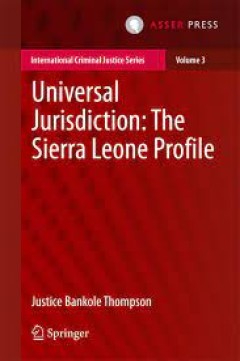
Universal Jurisdiction: The Sierra Leone Profile
The doctrine of universal jurisdiction has evolved throughout modern times in the context of global criminal justice as a paramount agent of combating impunity emanating from international criminality. Sierra Leone, as a member of the international community and the United Nations, has, in recent times, been a pioneer in the progressive application and development of international criminal law …
- Edition
- -
- ISBN/ISSN
- 978-94-6265-054-1
- Collation
- -
- Series Title
- -
- Call Number
- -
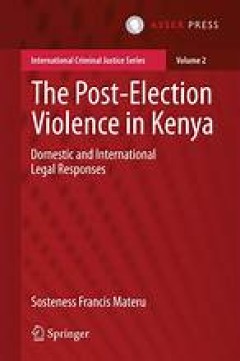
The Post-Election Violence in Kenya
Since the historic Nuremberg Trial of 1945 an international customary law principle has developed that commission of a core crime under international law – war crimes, genocide, crimes against humanity and aggression – should not go unpunished. History shows, that when in Africa such violations occurred, especially as a result of election disputes, national and regional actors, including…
- Edition
- 1
- ISBN/ISSN
- 978-94-6265-041-1
- Collation
- Hukum
- Series Title
- International Criminal Justice Series
- Call Number
- 340
 Computer Science, Information & General Works
Computer Science, Information & General Works  Philosophy & Psychology
Philosophy & Psychology  Religion
Religion  Social Sciences
Social Sciences  Language
Language  Pure Science
Pure Science  Applied Sciences
Applied Sciences  Art & Recreation
Art & Recreation  Literature
Literature  History & Geography
History & Geography